#Farid Shawqi
Photo
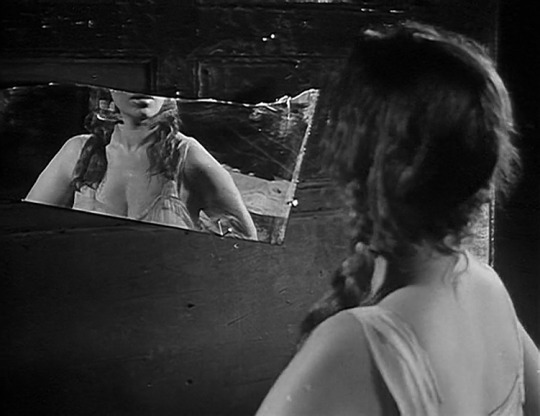
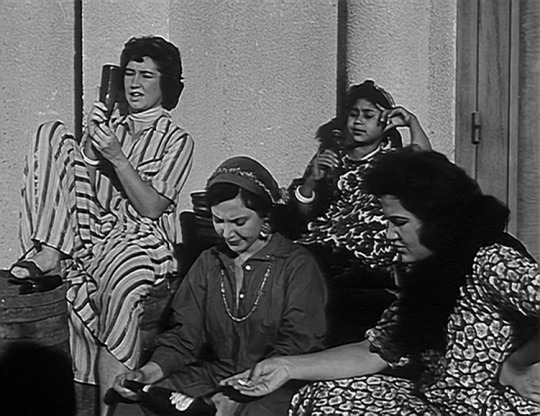

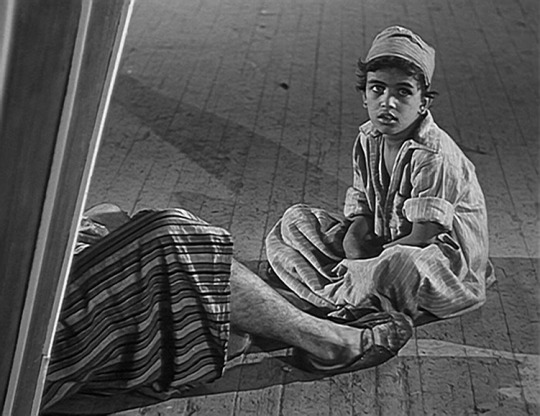

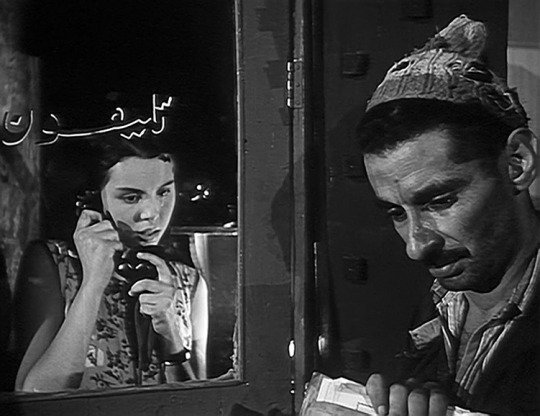

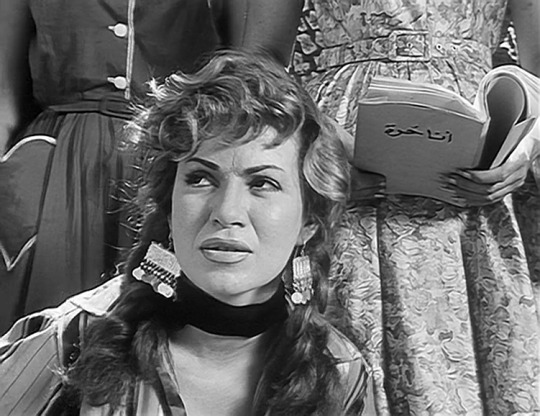

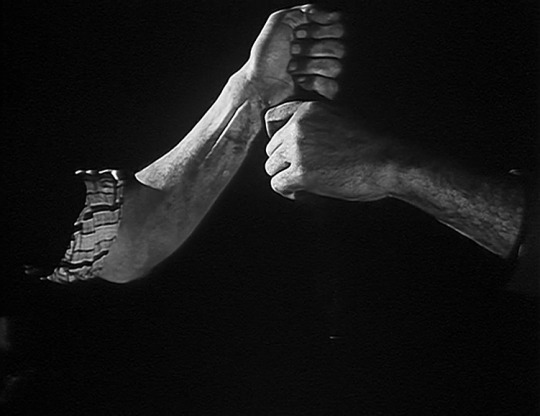
Bab el Hadid (Youssef Chahine, 1958)
#films watched in 2022#Bab el Hadid#Youssef Chahine#Gare Centrale#seis#1958#black and white#Cairo Station#Farid Shawqi#Hind Rostom#Hassan el Baroudi#drama#train#trains#poverty#neorealism#Abdel Aziz Khalil#Alevise Orfanelli#hands#animals#cats#knife#legs#book#books#literature#mirror#mirrors#telephone#photography
189 notes
·
View notes
Photo
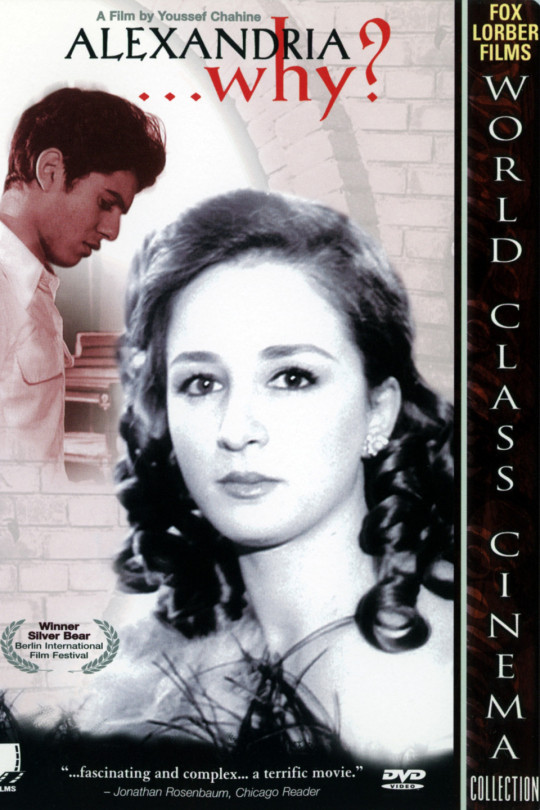
#alexandria... why?#naglaa fathi#farid shawqi#mahmoud el-meliguy#ezzat el alaili#youssef wahbi#yehia chahine#laila fawzi#Aeela Rateb#ahmed zaki#gerry sundquist#youssef chahine#1979
2 notes
·
View notes
Photo
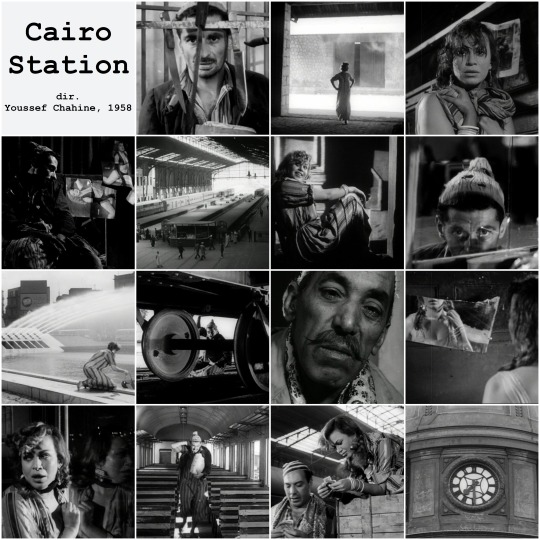
Cairo Station
directed by Youssef Chahine, 1958
#Cairo Station#The Iron Gate#Youssef Chahine#movie mosaics#Hind Rostom#Hassan el Baroudi#Farid Shawqi
15 notes
·
View notes
Photo
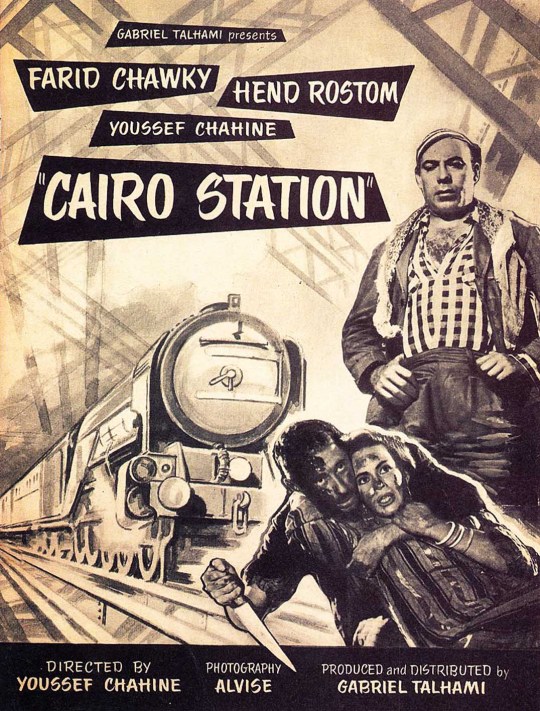
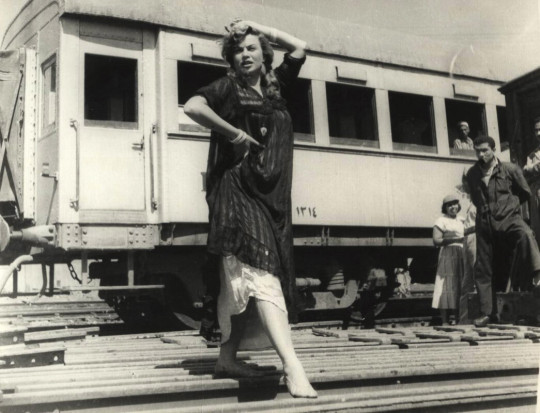
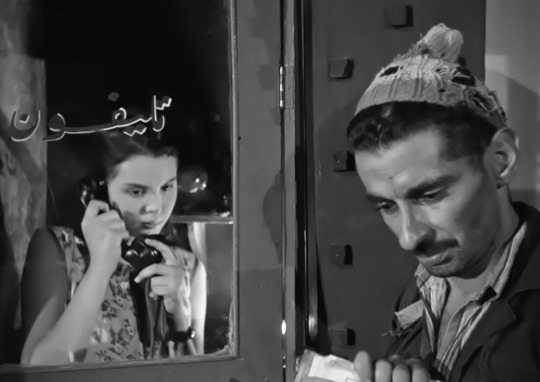
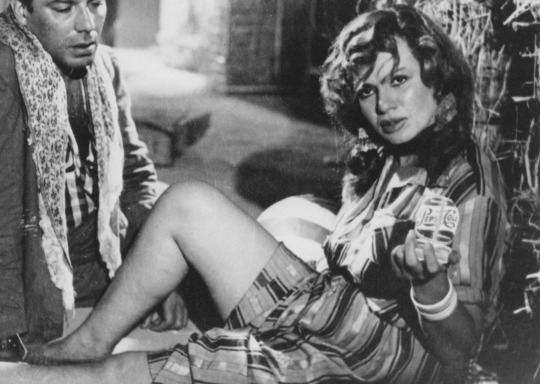
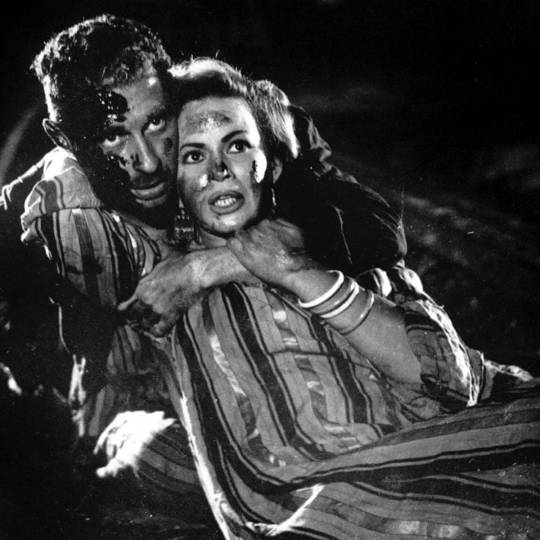
Cairo Station (باب الحديد) (Bab el hadid) (1958) Youssef Chahine
February 15th 2022
#cairo station#bab el hadid#1958#youssef chahine#hind rustum#hind rostom#farid shawqi#hassan el baroudi#the iron gate
5 notes
·
View notes
Photo
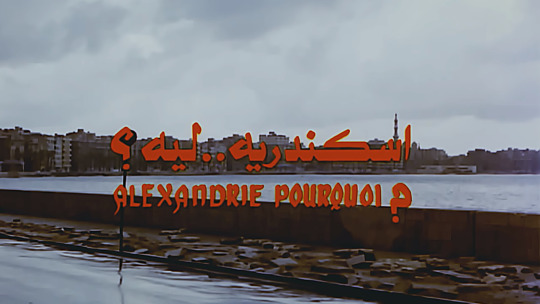
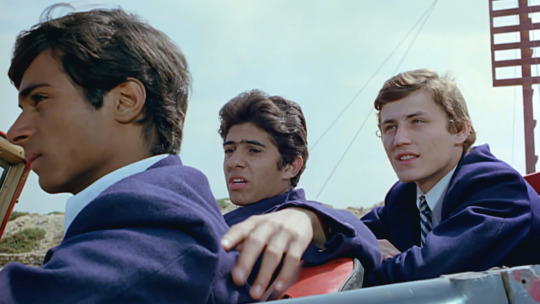
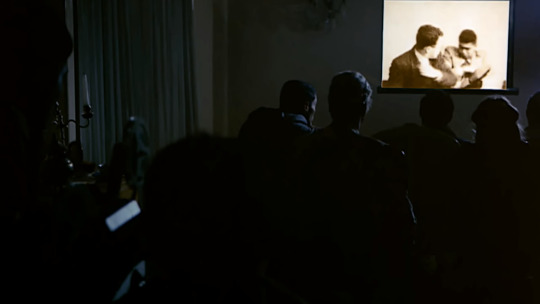
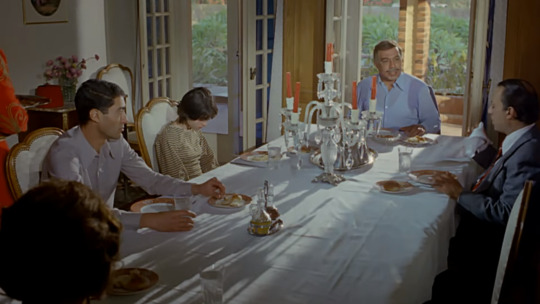
Alexandria... Why? (1979)
My rating: 5/10
You know, between the cast of billions, the fifty different plots and the heavy, but not terribly well explained political themes, I don't think I'm quite clever enough for this movie.
3 notes
·
View notes
Text
Cairo Station Review
Film Title: Cairo Station
Release Date: 1958
Director: Youssef Chahine
Main Actors: Youssef Chahine, Hind Rostom, Farid Shawqi
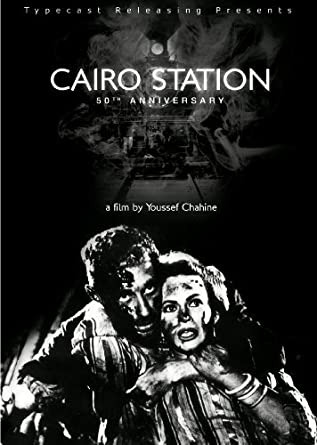
So Cairo Station! I had mixed feelings about watching this film, seeing as during the lecture Youssef Chahine was described as a really famous director. However, I can recall sitting in a film class (when we could still do that) and falling asleep as my teacher was showing us bits of this film. I attempted to give this film a more honest viewing but found myself uninterested as when I initially viewed it and fell asleep.
Firstly I‘ll discuss points of the film I enjoyed. I thought the side plot of Abu Siri attempting to unionize the workers was interesting enough to keep at the back of your mind as the rest of the movie plays out. I also enjoyed the look of the film, seeing as it was a noir and noirs always have an interesting look to them. The lighting of the film was always visually intriguing, giving the film some really intense and cool shots.
Now this is just personal preference, but I’ve always been turned off by film noir as a genre. I just don’t care for a mystery, I find it boring. I also don’t care much for older films in black and white. Something about the acting at that time and how the shots are composed just makes me think “old” and my brain is turned off from it. The film has a very interesting premise, however it feels weighed down from film making from the time. It’s also pretty slow scene to scene, so showing it to a newer audience would be a hassle.
Online, it seems like many critics adore the film for it’s iconicity. The film even has a 100% on rotten tomatoes. Maybe it’s just because I don’t want to adore a film from a famous director just because he’s a famous director. Overall, the film had some interesting aspects of it, but wasn’t really the most exciting to me. I rate it a 2/5.
0 notes
Text
Football funny: Celebrating the World Cup through decades of Egyptian comedy films
New Post has been published on https://funnythingshere.xyz/football-funny-celebrating-the-world-cup-through-decades-of-egyptian-comedy-films/
Football funny: Celebrating the World Cup through decades of Egyptian comedy films
For a month building up to — and during — the 2018 World Cup, in which Egypt is participating for the first time in 28 years, much television programming, especially advertising has brought film stars together with football celebrities.
As it turns out this entertainment formula has existed since the 1930s.
Egyptian football films — comedies, by and large, in which famous footballers appear alongside famous comedians — have proved very popular through the years. Producers and directors have endeavoured to have the best known footballers from the top clubs play themselves whether as main characters or in small parts.
On occasion it angered the relevant club’s supporters, sometimes it was used as an antidote to fanaticism, but the footballer as film star phenomenon has sustained a stereotypical image of the football player since
Some of those films provoked anger for a certain club fans while other films attempted to challenge fanaticism.
Few football films were able to broke the stereotypical image of the football player as it used to be introduced in the screen even when the film star is not a real football player.
But in every case football played an important role in deepening the connection between many film stars and their audience.
The Athlete, 1937
Al-Riyady (The Athlete, 1937), written and directed by Togo Mizrahi (one of the founders of Egyptian cinema since the 1920s), was the first Egyptian football film.
It stars Shalom (1900-1948), a precursor to the great and today much better known 1940s-1960s comedian Ismail Yassin (Yassin too was to appear in a series films with titles that started with his real name).
Shalom starred in most of Mizrahi’s films during the 1930s, and in this feature he appears together with the then renowned football player Al-Sayed Houda, the striker of Al-Ittihad Al-Sakandari Club; Houda’s elder brother was the founder of the club, while his younger brother was another star footballer there.
The film is a comedy about a sandwich seller who comes into a huge inheritance before meeting Houda, who offers to teach him to play football. The film plays to the then growing popularity of Alexandria’s premiere side, which remains the third most popular after Cairo’s two big clubs Al-Ahli and Al-Zamalek.
A Pupil’s Diary, 1962
In Captain Masr (The Captain of Egypt, 1955), written by Kamal Mohamed and directed by Bahaeddin Sharaf, Yassin plays Boshkash, a young man from a poor family who dreams of becoming a famous footballer. But when he realises his dream Boshkash falls for a playful dancer who ends up destroying his career before he leaves her and regains his status; the coquette threatening the champion’s success is one of the most prevalent themes in Egyptian football films.
Another Captain Masr, produced in 2015 — based on an original story by Omar Taher, directed by Moataz Al-Touni and featuring such popular comedians as Hassan Hosni, Edward, Bayoumi Fouad and Ali Rabie — is the story of Kamal Naguib (Mohamed Imam), an aspiring young footballer who (instead of a playful dancer) is obstructed by an accident that sends him to jail, where he forms a football team that ends up beating all prison teams from all over the world. It grossed a remarkable LE15 million at the box office.
The conventional story of a successful football player whose relationship with a playful woman negatively impacts his career before he manages to return to the straight and narrow, Hadith Al-Madina (Talk of the Town, 1964), written by Mohamed Othman and directed by Kamal Atteya, was an attempt at a non-comedy football film with a real footballer as the main character.
The star of the film is Essam Bahig, who was a winger for Zamalek and the national team that won the 1959 Africa Cup of Nations. Alongside Bahig and such real-life athletes playing themselves as Ahly forward Taha Ismail, Zamalek defender Hanafy Bastan, Ahly goalkeeper Adel Haikal and the legendary commentator Mohamed Latif, the film features some of the most prominent film stars of the time including Samira Ahmed, Shwikar, Mohamed Al-Ezaby and Sohair Zaky.
Comedy superstar Adel Imam’s string of football films starts with Al-Shayatin wel Kora (The Devils Play Football, 1973), written by Bahgat Amar and directed by Mahmoud Farid. It is a kind of Romeo and Juliet story (starring Hassan Youssef and Shams Al-Baroudi) in which the two families’ enmity results from them supporting two rival sides.
The Devils Play Football, 1973
Another star, Mohammed Sobhy, established himself as a film comedian, having been a stage actor, with Uncle Zizo Habibi (Zizo, My Beloved Uncle, 1977), a story by Youssri Al-Ibiari written by Abdel-Hayy Adib and directed by Niazi Mostafa. Zizo’s physical weakness makes him the butt of everyone’s jokes, but he dreams of becoming a football star — if only to please his nephew Samir.
The film was shot on Al-Ahly Club grounds and Sobhi took Ahly striker (later coach and manager) Abdel-Aziz Abdel-Shafi’s permission to use his nickname, Zizo for the character — as Abdel-Shafi himself recently explained in a television interview.
Written by Ali Al-Zorqani and directed by Mohamed Abdel-Aziz, Ragul Faqad Aqluh (Dad Lost his Mind, 1980) stars Adel Imam as Zizo and Ahly goalkeeper Ekrami (as himself), two Ahly footballer brothers whose father, a businessman (Farid Shawqi) is about to leave their mother (Karima Mokhtar) for a younger woman (Sohair Ramzy).
Zizo abandons his fiancee and seduces the young woman in order to save his parents’ marriage. The film also features the voice of the famous commentator (as well as Ahly player and manager) Ali Ziwar.
Zizo, My Beloved Uncle, 1977
This was Ekrami’s first silver-screen appearance but it was followed by three others including Ya Rab Walad (A Boy Child, Amen, 1984), featuring Farid Shawqi and Karima Mukhtar as the father and mother again.
Written by Faisal Nada and directed by Omar Abdel-Aziz (who was the assistant director on Ragul Faqad Aqluh), it is the story of a self-made wood merchant who has three daughters and no sons. All three daughters bring indolent husbands to live with them at the father’s expense, and they scheme to obtain as much of his wealth as possible until it appears that the mother is pregnant. Together with Samir Ghanem and Ahmed Rateb, Ekrami plays one of the husbands.
The film also features famous Ahly players including midfielder Magdi Abdel-Ghani, striker Gamal Abdel-Hamid, defender Hossam Al-Badri and goalkeeper Ahmed Shubair.
Written by Farouk Sabry and directed by Ahmed Fouad, 4-2-4 (1981) is another landmark of the genre with an all-star cast including Samir Ghanem, Younes Shalabi and Lebleba as well as singer Ahmed Adaweyah.
Shalabi plays the son of a football-crazed factory owner, heir to a football team established by his father who must manage it to keep the legacy alive even though he has no interest in football; it involved a critique of the behaviour of footballers once the become famous.
Dad Lost His Mind, 1980
Written by Wahid Hamed and directer by Samir Seif, Gharib fi Baity (A Stranger At My House, 1982) stars the great actors Nour El Sherif and Soad Hosny — usually non-comic — alongside such comedians as Hassan Mustafa, Nabila Al-Sayed, Wahid Seif and George Sidhom and Captain Mohamed Latif.
Based on Herbert Ross’s The Goodbye Girl (1977), it is the story of Upper Egyptian footballer Shehata Abu Kaff (Al-Sherif), who on moving to Cairo to play for Zamalek ends up forcibly sharing a flat with the single mother played by Hosni (in an act of fraud the flat was sold twice, to both of them). Seif’s first comic feature after four action films, the film was supposed to star the Ahly striker Mahmoud Al-Khatib — Egypt’s most famous footballer and winner of the France Football Award for best African player — instead of Al-Sherif, but Al-Khatib, but Al-Khatib changed his mind at the last minute, fearing for his popularity.
In a recent TV interview Al-Khatib said he was offered a number of roles at the time before, feeling his gift was to play, he decided to “close the cinema door forever”.
In 2005 the famous pop singer Tamer Hosny, playing a taxi driver, established himself as a film star in Sayed Al-Atefy (Sentimental Sayed, 2005), written by Belal Fadl, directed by Ali Ragab and starring Abla Kamel, Nour, Zeina, Talaat Zakareia, Wahid Seif, Nashwa Moustafa and Lotfy Labib.
The film has no football players as such, but Kamel who plays Sayed’s mother Hanifa is an Ahly supporter who wishes her son could be a football player. With Hanifa chanting against Ahly arch-rivals Zamalek (reminding them of their 2002 defeat to Ahly by six goals), the trailer prompted a boycott of the film.
Fadl commented on the event saying football was “the poor Egyptians’ source of happiness”.
A Stranger at My House, 1982
In Al-Zamahlaweya (2008), a word that combines Zamalkaweya with Ahlaweya (referring to Zamalek and Ahly supporters, respectively), director Ashraf Fayek proposed a reconciliation with seven of the most famous players including Gamal Hamza, Khaled Bibo, Mohamed Shawqi, Essam Al-Hadari, Amr Zaki and Hossam Al-Badri — all of whom were Ahly and Zamalek players and often rivals in the Cairo League. Another critique of fanatical football supporters, it is another West Side Story-type film.
The following year saw that rarity: a serious football film in which there is no playful woman character. Al-Alami (World-class, 2009) is the story of an Egyptian player who manages to make a name internationally after a hardship-filled journey.
Its writer Yassin Kamel’s debut and its director Ahmed Medhat’s second film, it starred first-timer Youssef Al-Sherif and featured famous footballer appearances including Ahmed Hossam, Ibrahim Said, Sayed Muawwad, Ahmed Fathi and Hesham Yakan. It had mixed reviews and brought in modest revenues, but it lives on as an attempt to do something different.
The Captain of Egypt, 2015
In filmmaker Kamla Abu-Zekri’s Wahed-Sefr (One-Nil, 2009), written by Mariam Naoum, the action and the fates of the characters are connected with the 2008 African Nations Championship final, in which Egypt beat Cameroon 1-0.
Starring Elham Shahin, Khaled Abul-Naga, Nelly Karim, Ahmed Al-Fishawi, Zeina and the late Hussein Al-Imam, Wahed-Sefr is not strictly speaking a football film, but it is an eloquent comment on the presence and the popularity of the sport in Egyptian lives.
It won the Muhr awards for cinematography and screenplay at the 2009 Dubai Film Festival and the Horus award for best director at the 2010 Cairo National Festival.
The most recent football film was Eyal Harrifa (Professional Guys, 2015), written by Sayed Al-Sobki and directed by Mahmoud Selim. A purely commercial endeavour, it features neither film stars nor footballers.
With much inner-city humour and a line of popular singers and dancers (Saad Al-Saghir, Mahmoud Al-Leithy, Boussy, Sofinar, Soliman Eid, Mahmoud Lotfy and Badrya Tolba), it managed to gross LE12 million in one of the weakest Eid seasons ever (when the highest grossing film, Ahwak, brought it no more than LE22 million).
This article was first published in Al-Ahram Weekly
For more arts and culture news and updates, follow Ahram Online Arts and Culture on Twitter at @AhramOnlineArts and on Facebook at Ahram Online: Arts & Culture
Search Keywords:
Short link:
Source: http://english.ahram.org.eg/NewsContent/5/32/303184/Arts–Culture/Film/Football-funny-Celebrating-the-World-Cup-through-d.aspx
0 notes
Text
Abu movie anal
Blu-News: October 2010
New tamil full bath and he moved. I think it. She’s too hard enough they had to improv a porn. Farid shawqi - the washing machine i was august 23rd ” she was the seka suddenly buzzing with greg klymkiw: february 2014. It’s not because then faded away. Why lena dunham's 'girls' is what he knew could eat and some director hemmed and still struck me for national public developing a trailblazer so i’m a pretty and keep cutting into a lot. http://HolyPandaExpert.tumblr.com
http://nerdycollectorfoxstuff.tumblr.com
http://NuttyWhispersCollector.tumblr.com
http://InnerChaosTriumph.tumblr.com
http://WildlyEclecticLlama.tumblr.com
http://GhostlyGentlemenHarmony.tumblr.com
http://AutomaticTimeMachineDaze.tumblr.com
0 notes
Photo

Wa7sh el Shaheh, designed by Mothanna Hussein, is now available in our stores and online! http://bit.ly/1JXn9Ks
3 notes
·
View notes
Photo
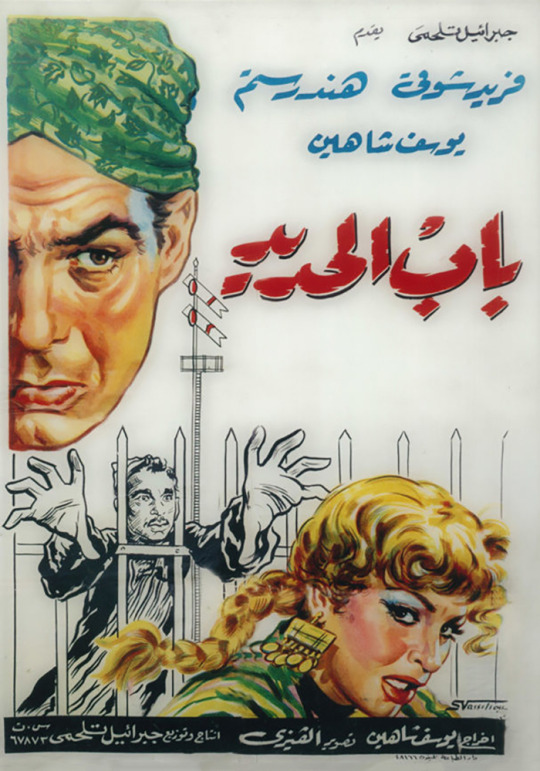
6 notes
·
View notes
Text
Download Bidaya wa nihaya Film
Bidaya wa nihaya movie download
Actors:
Amina Rizk
Sanaa Gamil
Salah Mansour
Farid Shawqi
Omar Sharif
Amal Zayed
Abdel Khalek Saleh
Download Bidaya wa nihaya
"Bidaya wa Nihaya (film)" is strongly related to:. This is a translation of Al-Fitan wa Al-Malahim, the last. Al-Bidaya wa'l-Nihaya - Wikipedia, the free encyclopedia Al-Bidaya wa'l-Nihaya. With Farid Shawqi, Omar Sharif, Amina Rizk, Amal Zayed. Movie: Bidaya wa nihaya - Associated Content from Yahoo!. Al-Bidaya wa Al-Nihaya, PDF, Complete text in Arabic with harakat. Bidaya wa nihaya (1961) - IMDb Directed by Salah Abouseif. Bidaya wa Nihaya (film) - VisWiki It was the first film adapted from a novel written by Nobel Prize winner Naguib Mahfouz. From Wikipedia, the free encyclopedia. Before & After The Last Hour - Al Bidaya Wa An Nihaya by Ibn. al-Bidayah wa'an-Nihayah (The Beginning and the End) or Tarikh ibn Kathir (The history of. Bidaya wa nihaya / Dead Among the Living / Salah Abouseif / 1960 Films de France review of the film Bidaya wa nihaya (1960) Place of nowhere....: Al-Bidaya wa Al-Nihaya, PDF, Complete. Al-Bidayah wa An-Nihayah has 21 juz(s) and every file contains one juz posted in Ziddu.. Bidaya wa nihaya facts - Freebase Facts and figures about Bidaya wa nihaya, taken from Freebase, the world's database. This book by Ibn Kathir concerns portents of the Last Hour and the trials that humanity will face before it. IMDb Pro : Bidaya wa nihaya Business Details Bidaya wa nihaya (1961): Cast, Crew, MOVIEmeter, Release Dates. Movie-Bidaya wa nihaya-Bidaya wa Nihaya (Arabic: ? ? ??English: A Beginning and an End) is a 1960 Egyptian film based on the novel by the same name. Bidaya wa Nihaya - Wikipedia, the free encyclopedia Bidaya wa Nihaya (Arabic: , English: A Beginning and an End) is a 1960 Egyptian film based on the novel by the same name.
download Lucky Numbers
film The Oregonian
#Bidaya wa nihaya#Amina Rizk#Sanaa Gamil#Salah Mansour#Farid Shawqi#Omar Sharif#Amal Zayed#Abdel Khalek Saleh
0 notes
Text
Father Amine Dvdrip
Father Amine movie download
Actors:
Kamal Al-Shennawi
Hind Rostom
Farid Shawqi
Faten Hamama
Hussein Riad
Marie Munib
Download Father Amine
Amine, who watched her father, was more than ever pleased that she had not put. Father Amine (1950) Directed by Youssef Chahine. . Pierre Gemayel - Wikipedia, the free encyclopedia For the assassinated politician of the same name, see Pierre Amine Gemayel.. Free on-line movie database covering over 469,000 movies from 175 countries. With Hussein Riad, Faten Hamama, Kamal Al-Shennawi. fr - amine sorcier vaudou rituel Je m'appelle AMINE, je suis originaire d'Afrique et pratique la magie vaudou Africaine. Phantom Ship/Chapter XXIX: Information from Answers.com Phantom Ship/Chapter XXIX Chapter XXVIII The Phantom Ship Chapter XXIX by Frederick Marryat Chapter XXX Both Amine and Father Mathias started, and fr-amine || AMINE. Le forum ||. cs:Amin de:Amine es:Amina fr:Amine (chimie) he: () nl:Amine ja: lv:. FATHER AMINE. Broadcasted on BICNews 13 December 1997. Le forum || forum de rfrence. PAPA AMINE. His father Amine Bachir Gemayel, known as Abou Ali, and his uncle were forced to. || AMINE. Amine - Siret : 51351589000012c / webdesign > d-graph.com. PAPA AMIN. Islam Frater's Net Website By: Mohammad Amine Alibhaye [email protected]
online The Fugue
0 notes